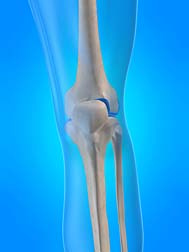Avandia now Linked to Osteoporosis 
| December 4, 2007. By Gordon Gibb |
La Jolla, CA: A diabetic drug that has been linked to heart attack, heart failure, stroke and bone fractures in women, has today been slammed yet again with new research on the role Avandia plays within the context of increased risk for osteoporosis.
The findings were announced yesterday.
GlaxoSmithKline, the manufacturer of Avandia, has already admitted that Avandia does contribute to bone fractures in women. However, the latest research goes further in understanding the issue, just what is happening to those brittle bones, and what it is that’s making them brittle in the first place.
Initially, it was thought that rosiglitazone, the generic term for the drug that is marketed as Avandia, was serving as a governor to the bone-building process. In other words, as bones evolve in the human body (much like skin), it was originally thought that Avandia somehow contributed towards an inability to effectively regenerate bone lost in the natural regenerative process.
 However, this latest conclusion””arrived at quite by accident””reveals that rosiglitazone actually contributes to bones loss over long treatment periods. Rather then prevent bone from regenerating, Avandia contributes to actual bone loss.
However, this latest conclusion””arrived at quite by accident””reveals that rosiglitazone actually contributes to bones loss over long treatment periods. Rather then prevent bone from regenerating, Avandia contributes to actual bone loss.
The finding leads to “a better understanding of the challenges associated with long-term treatment of patients with Type II diabetes,” according to Ronald M. Evans of the Salk Institute for Biological Studies in La Jolla, Calif., lead author of the report.
Researchers were conducting studies on diabetic mice, when they stumbled upon their surprising conclusion. Their findings offer hope that this aspect of Avandia as a contributor to bone loss could be further studied and isolated and, one day, ‘dialed-out’ of a future generation of drugs dedicated to the treatment of Type 2 Diabetes.
The Howard Hughes Medical Institute, and the National Institutes of Health funded the research. The findings appeared in this week’s online issue of Nature Medicine.
Researchers found that rosiglitazone””Avandia””stimulates the cells that break down bone in the body, for future regeneration. Osteoporosis occurs when the body loses more bone that it has the capacity to regenerate. Osteoporosis is of particular concern to older women, and this latest research suggests that Avandia should not be prescribed to patients with a history of osteoporosis.
Further, for Avandia patients who also suffer from chronic osteoporosis, there is now the possibility of a contributing cause to the bone loss.
It may not just be from aging. Avandia may be helping it along.
